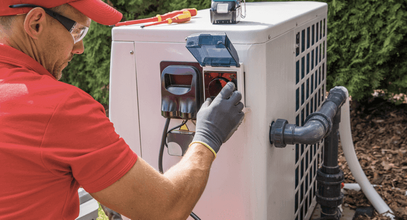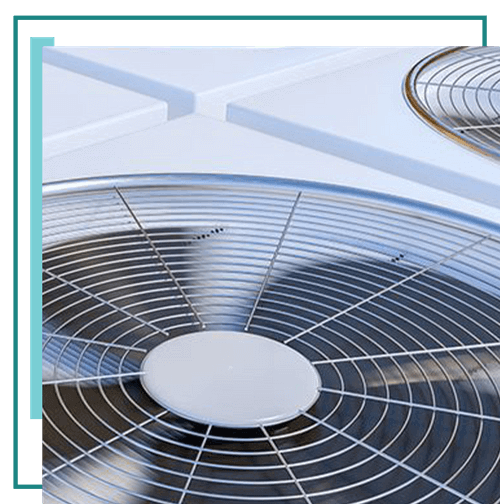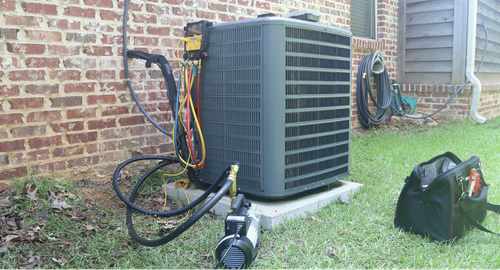Air conditioning systems play a vital role in keeping our homes cool and comfortable, especially in the scorching heat of Florida. However, if you've noticed water pooling around your AC unit, it's crucial to address the issue promptly to prevent potential damage and ensure your system continues to operate efficiently. In this guide, we'll delve into the causes of AC water leakage, explore effective solutions, and provide valuable prevention tips to keep your cooling system in top condition.
AC Leaking Water
Why Is My AC Leaking Water?
Discovering water pooling around your air conditioning unit can be concerning. There are several potential reasons for this occurrence, each requiring specific attention. Let's delve into the common causes of an AC leaking water and how to address them effectively.
1. Clogged or Blocked Condensate Drain Line
One of the most prevalent causes of AC unit water leakage is a clogged or blocked condensate drain line. Over time, dust, debris, and algae can accumulate within the drain line, obstructing the flow of water. As a result, the water can back up and overflow from the drain pan, leading to leakage.
Solution: Regular Maintenance and Cleaning
To prevent a clogged drain line, it's essential to perform routine maintenance. Regularly inspect and clean the condensate drain line, especially before the cooling season begins. You can use a mixture of vinegar and water to clear any buildup and ensure proper drainage.
2. Frozen Evaporator Coil
If your AC unit's evaporator coil becomes frozen, it can lead to water leakage when the coil eventually thaws. A frozen coil is often caused by restricted airflow due to a dirty or clogged air filter.
Solution: Replace or Clean Air Filters
To prevent the evaporator coil from freezing, regularly check and replace or clean your air filters. Adequate airflow is crucial for the proper functioning of your AC unit and can help prevent this issue.
3. Damaged or Cracked Drain Pan
The drain pan beneath your AC unit collects condensate water and directs it toward the drain line. If the drain pan is damaged, cracked, or misaligned, water can escape and cause leakage.
Solution: Inspect and Replace the Drain Pan
Inspect the drain pan for any signs of damage or cracks. If you notice any issues, replace the drain pan promptly to prevent water leakage. Regularly checking the drain pan during routine maintenance can help catch potential problems early.
4. Low Refrigerant Levels
Low refrigerant levels can result in a drop in pressure within the evaporator coil, leading to the coil becoming too cold and freezing. Once the coil thaws, the excess water can lead to leakage.
Solution: Professional Inspection and Refrigerant Refill
If you suspect low refrigerant levels, it's crucial to consult a professional HVAC technician. They can assess the refrigerant levels, identify any leaks, and refill the refrigerant if necessary.
5. Incorrect Installation
Improper installation of the AC unit, especially with an incorrect tilt, can cause water to pool and eventually leak from the unit.
Solution: Professional Installation and Adjustment
Ensure your AC unit is properly installed by seeking the expertise of a licensed HVAC technician. They can ensure the unit is correctly positioned and tilted to facilitate proper drainage.
6. Excessive Humidity
High humidity levels can lead to excess condensation, overwhelming the drain pan's capacity and causing water leakage.
Solution: Use a Dehumidifier
In areas with high humidity, using a dehumidifier alongside your AC unit can help manage excess moisture and reduce the risk of water leakage.

AC Unit Leaking Water
If your central AC unit is leaking water, it's essential to pinpoint the root cause promptly. Possible explanations range from clogged drain lines to refrigerant leaks.

Furnace Leaking Water When AC Is On
Observing water around your furnace while your AC is running may raise questions. This phenomenon often points to a condensation issue within the system. Some causes of a Furnace Leaking Water:
Clogged Drain Line: A clogged or blocked condensate drain line can lead to excess water backing up and overflowing into the furnace cabinet.
Damaged Drain Pan: If the condensate drain pan is cracked or damaged, water can escape and accumulate in the furnace.
Incorrect Slope: Improper installation or leveling of the condensate drain pan may prevent proper drainage, causing water to pool in the furnace.
Dirty Evaporator Coil: Dust and debris on the evaporator coil can hinder proper drainage and contribute to water leakage.

Water Leaking From AC
Water leakage from your AC can result from multiple factors, such as blocked condensate drains or improper installation. Water leakage from your AC unit is a sign that something within your cooling system requires attention. By understanding the potential causes and implementing the appropriate solutions, you can effectively address the issue and prevent further leakage. Regular maintenance, professional inspections, and prompt repairs are essential to ensure your AC unit operates efficiently and provides optimal cooling comfort. If you're experiencing persistent water leakage or need expert assistance, don't hesitate to reach out to knowledgeable AC professionals.
Why Is My AC Unit Leaking Water?
Discovering water leakage from your air conditioning (AC) unit can be a cause for concern, especially during the hot and humid months. Water leakage not only indicates a potential issue with your AC system but also raises questions about its efficiency and performance. If you need to finance a new system, get in touch with Florida Man AC right away.
